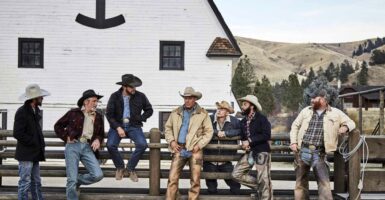The Best Female Characters Of Sci-Fi Film And Television
Hell hath no fury...
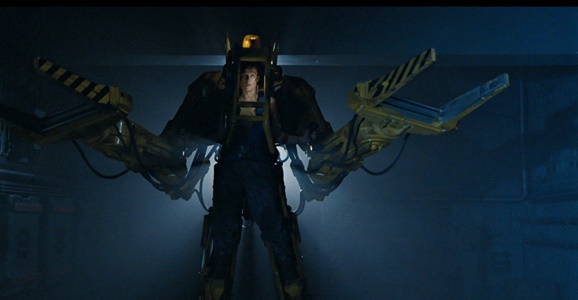
One of the reasons we love science fiction is because there’s no shortage of strong, dynamic, fascinating female characters kicking around the galaxy, a trait that isn’t always a given in other genres. Iconic characters like Ripley and Sarah Connor have become the bar by which most other female heroines are measured against, but thankfully sci-fi doesn’t limit its badass females strictly to the most obvious form of badassery. Our favorite sci-fi heroines might have what it takes to field-strip a pulse rifle, or they might have the fortitude to lead a desperate fleet of mankind’s remnants across the stars to a new home. They might be able to take down multiple murderous cyborgs, or they might have the courage to serve as inspiration for revolution against an oppressive government.
When it came time for us to pick out favorite female characters from science fiction film and television, the task was more than daunting. After several rounds of voting, arguing, throwing things, and threats of blackmail, we finally whittled our list down to 19, our picks for the very best, most interesting, most compelling, most badass female characters the genre has had to offer across film and TV. We’re listing them in alphabetical order by last name, but it’s strangely appropriate who wound up as number one regardless…
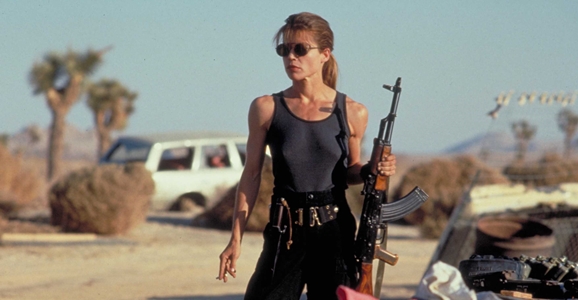
Sarah Connor (The Terminator)
When we first meet Sarah Connor, played by Linda Hamilton, in James Cameron’s 1984 tech-noir classic The Terminator, she’s a meek waitress at a diner, just sort of drifting through life without much of a goal or even any discernible direction. Her subsequent transformation into one of cinema’s, and television’s, most badass characters, male or female, is nothing short of astounding. When we first see Sarah in the 1991 sequel, Judgment Day, she’s a completely different person, physically as well as mentally. She’s honed her body in every way possible, in this case by doing the psych hospital equivalent of prison-yard pull-ups, and she has dedicated her life to protecting her son John, and preparing him to be the savior of the human race.
No mother wants to imagine that her child is going to live a life of hardship and danger, let alone know that for a fact, but over the span of multiple movies and a too-short-lived TV show, we’ve seen her grapple with this knowledge. At times knowing the future comes damn close to overwhelming her, but time and time again, we see Sarah steadfastly, ferociously defend her family and the future of the human race. Compassionate, kind, and tough as fucking nails, Sarah Connor is hands down one of our favorite characters, movie or TV, man or woman, sci-fi or otherwise. And next summer we’ll get to see a whole new incarnation as Game of Thrones star Emilia Clarke, a badass in her own right, takes over the role and makes it her own. – Brent

Olivia Dunham (Fringe)
Few realms on television have been as male-dominated as law enforcement, and the women who do manage to penetrate the boys’ club, even in this supposedly enlightened era, still have to deal with a heaping pile of shit along the way. One of my favorites is Olivia Dunham (Anna Torv) from Fox’s gone-too-soon sci-fi procedural Fringe, who not only navigated this treacherous realm, but did it without taking shit off of anyone — not superiors, not monsters, not even alternate versions of herself.
That alone is serious business, but when you take into account the kinds of chaotic, crazy adventure Liv and her team dealt with, her gets that much more awesome. They face off with all manner of nasty creatures, jump from one universe to another and back with impunity, and manage to save multiple realities from complete and total destruction. And she gets to hang out with a legitimate mad scientist. Sure, Walter may be the reason why multiple planes of reality are crumbling to pieces, but that’s the kind of thing that mad scientists are supposed to do, right? If you can deal with that kind of madness day in, day out, for five seasons, including a jaunt to the future, all without batting an eye, you are definitely not someone to be trifled with. – Brent
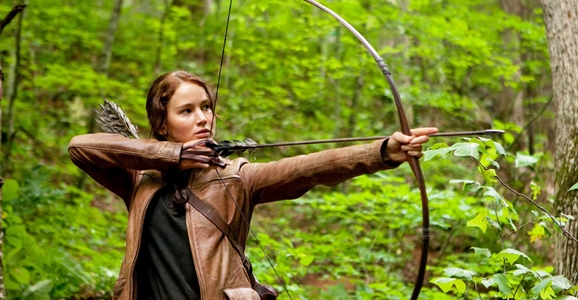
Katniss Everdeen (The Hunger Games)
Both on the page and onscreen, Katniss Everdeen is the pinnacle of the current crop of young sci-fi heroines (despite an obviously ridiculous name). There’s a reason that The Hunger Games is the undisputed ruler of the dystopian YA landscape that is so popular, and that reason is her. For all the attempts, thus far no one has been able to come close, and until they have a protagonist who can hold a candle to Miss Everdeen, they’re going to continue to fall short, not just in book sales and box office receipts, but in overall quality.
Katniss is by turns incredibly tough when she needs to be, but also incredibly kind; equally as strong as she is fragile. Compelled by forces beyond her control to kill, she does what she must in order to survive, but at the same time, this isn’t something she takes lightly. The lives she ends haunt her, as do the consequences of her actions as a symbol of rebellion, revolution, and freedom in the oppressed districts of Panem. She’s very human, very real, and very overwhelmed by the weight of her decisions, and she still manages to be brave and heroic when necessity dictates. If I had children I can’t adequately express how much I’d rather them become infatuated with Katniss than just about any other YA characters out there, especially sparkly fucking vampires. – Brent

Max Guevara (X5-452) (Dark Angel)
I was a big fan of Dark Angel when it first premiered all the way back in 2000. The show was from James Cameron, it was science fiction, it starred Jessica Alba, and it featured bike messengers in the future. What was not to like? With a very solid first season, Dark Angel was one of the better new shows on television at the time.
Jessica Alba played Max Guevara, also known as X5-452, a runaway genetically enhanced super-soldier who spent her adolescence trying to escape from a government organization that was creating these child-soldiers in secrecy. Max was a tough bike messenger by day, trying her best to live a normal life in a post-apocalyptic world. When the government agency known as Manticore tracked her down, her training kicked in, and she had to fight to keep her friends safe from the truth about her past life. There has to be something said for wanting to keep your history out of the spotlight. It’s a quiet and reserved quality, but that’s what made Dark Angel interesting to me. It was a show about a woman fighting to be normal. There were many other people just like Max, who made every episode worth watching, as she tried to find each and every one of them.
But in the second season, things began to go downhill as the series shifted to the other mutant experiments Manticore created. Alba and her character Max were consistent throughout the series, but sadly the show’s overall quality declined. – Rudie
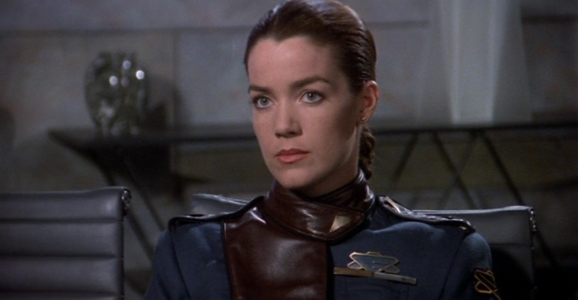
Susan Ivanova (Babylon 5)
Ivanova was well known for her bleak Russian cynicism, but that cynicism was well earned. She lost her telepath mother early on after the suppressive drugs mandated by Psi-Corps drove her to suicide. She lost her brother during the Earth-Minbari War, a tragedy that spurred her to join Earthforce in his honor. As second in command of Babylon 5, she was forced to face off against her own people in a bloody civil war, one that came right after an even bloodier interstellar war between two ancient forces who primarily viewed humanity and the younger races as pawns in a millennia-old game of “Nuh uh!” And let’s not even venture near the subject of her love life, because oy.
Nevertheless, Ivanova soldiered through it all, growing from a dedicated but cold young officer into a seasoned badass capable not only of delivering the line “I am death incarnate…God sent me” without a hint of irony, but of backing it up with ruthless, decisive action. In a show that included many fascinating, dynamic female characters — Delenn and Lyta spring to mind — Ivanova has always been my favorite simply because she was so relatable. Thrown again and again into events of calamitous import, with the literal fate of the galaxy at stake, she is forever bemoaning her impending doom…but that never stops her from doing what needs to be done. For all that wry Russian wit, she never gives up, and she never gives in.
And like most of Babylon 5’s characters, she winds up in a very different place than she began, rising to the rank of General in Earthforce before taking over leadership of the Anla’shok at the request of Delenn. Even though actress Claudia Christian departed the show at the end of the fourth season, I’ve always loved that it’s Ivanova who delivers the final lines of the series, which sum up the theme of Babylon 5 in a nutshell:
Babylon 5 was the last of the Babylon stations. There would never be another. It changed the future, and it changed us. It taught us that we have to create the future, or others will do it for us. It showed us that we have to care for one another, because if we don’t, who will? And that true strength sometimes comes from the most unlikely places. Mostly though, I think it gave us hope. That there could always be new beginnings…even for people like us.
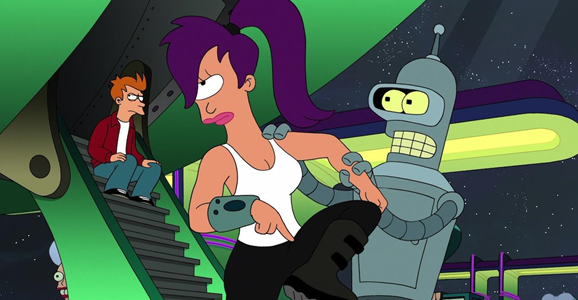
Turanga Leela (Futurama)
From the opening of Futurama’s pilot episode, we knew a character like Turanga Leela was going to be interesting to watch. She was the pilot of the Planet Express Spaceship and future wife of the series’ lead Philip J. Fry. She’s one of the more likable and sympathetic
characters on the animated series, but she’s never afraid to fight. Actually, she’s usually the first to throw a punch or a dropkick before anyone else begins to act. Leela is the apex of badass on Futurama, and no one else is her physical equal. Throughout Futurama’s series run, we got to see Leela develop from a know-it-all and protective pilot to a true leader of the entire Planet Express Company.
One of my favorite episodes is “Less than Hero,” where Fry, Leela, and Bender discover Dr. FlimFlam’s Miracle Cream, which gives them all superpowers. Leela is at the center of the episode, trying to balance her life as a normal and a mutant. It’s one of the more touching episodes of Futurama, but as “Clobberella” Leela also gets to beat up the bad guys and saves the city from the team’s nemesis the Zookeeper. – Rudie
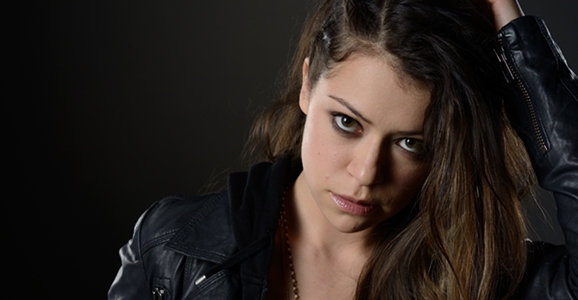
Sarah Manning (Orphan Black)
While many of the females on this list always seemed destined for greatness within the context of their stories, there is nothing about Sarah Manning’s life that appeared to be headed in the same direction as justice. Our entry point into Orphan Black is a lawless deviant struggling through a point in her life where her close proximity to drugs and criminal activity has kept her away from her daughter for a year’s time, and she is in need of a quick money fix. And in front of a speeding train steps Beth Childs…
This unlocks the door to a conspiracy-filled world populated by her clone sisters, a potentially evil corporation run by a smooth-talking mad scientist, and religious fanatics who believe that the science behind cloning is evil. Through the brilliant acting of Tatiana Maslany, we see Sarah step outside her comfort zone to pose as a cop and fool the most inefficient police force on TV, as well as impersonating her suburbanite clone Alison to fool an entire dinner party’s worth of possible spies, in a season that sees her character turn from a duplicitous thief to an eager detective driven by mysteries with outrageous implications. And she’s got a temper that’s as dark as her sense of humor. We can only imagine her heroine status will rise exponentially when season two airs next month. – Nick
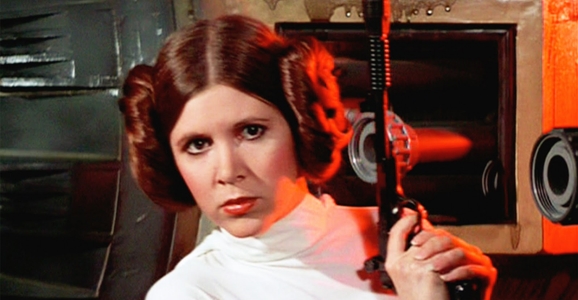
Princess Leia Organa (Star Wars)
Perhaps the most famous sci-fi heroine of all time, as well as one of the most beloved fictional princesses, Leia of Alderaan is as archetypal a character as there is, and she’s all the more memorable for it. Her beauty is only matched by her humility and indifference to her own appearance, her regality is mostly unassumed, and her bravery knows no bounds. She’s as quick to fire off a blaster as she is a sarcastic quip when Han Solo’s machismo comes on too strong. Plus, she makes a metal bikini look like the clothing of the gods. But you know what really makes Leia the most hardcore genre heroine in existence?
Not only does she begin the original Star Wars trilogy as a prisoner of Darth Vader for stealing the blueprints to the Death Star, but she eventually must fight against her captor knowing that he was responsible for destroying her entire planet, not to mention everyone she’d ever known and loved. Instead of going off into a dark corner and crying about it, she reaches under her signature hair buns and flips on her beast mode without ever looking back. And even though being lovesick isn’t always a beacon of strength, Leia is forced to cope with her newly admitted love Han Solo being frozen in carbonite and handed off to a deadly bounty hunter, so this is a little more complicated than high school puppy love. And you know what? She wins! – Nick
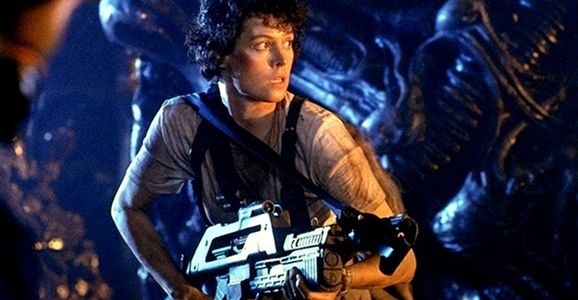
Ellen Ripley (Alien series)
Other than Sarah Connor, I’m not sure there’s any heroine on our list who could stay in the ring with Ripley for longer than 10 seconds. She’s almost as frightening as the xenomorphs she fights at times, and she never pulls a punch. She’s often not particularly likable, but that never matters — the question of likability as it’s generally assessed is irrelevant with Ripley. She kicks ass, she saves lives, and she’s as serious as a heart attack. Even sci-fi writer John Scalzi
says that’s she’s so clearly the best female sci-fi character that she causes sci-fi writers to rest on their laurels and to not strive as hard to render heroines as compelling as her. And maybe it’s true. Ellen Ripley in a power loader, telling an alien to “get away from [Newt], you bitch!” and then preceding to beat the crap out of the terrifying creatures three times her size, really sums it all up. She never shies away from a fight, even if her opponent has teeth like razor blades and acid for blood. Ripley is such an iconic character, and Weaver is such a great actress, that she received an Academy Award nomination for her role in Aliens (and won a few others); the Academy likes to ignore sci-fi, but not even they could pretend Ripley/Weaver wasn’t awesome.
A scene that’s always stayed with me is in Alien 3, when the alien traps Ripley, snarling and drooling and being generally terrifying…and then doesn’t kill her. What’s scarier than having a xenomorph all up in your face? The realization that it didn’t kill you because you’re carrying an alien queen embryo. Ripley also faces the possibility of being used as a biological weapon by the Corporation, which is one of those painfully ironic and compelling twists that motivates such a character to do what needs to be done — i.e., swan diving into a furnace while clutching the alien bursting from her chest. It’s a great death scene — part sacrifice, part duel to the death, part funeral pyre. All badass. – Joelle
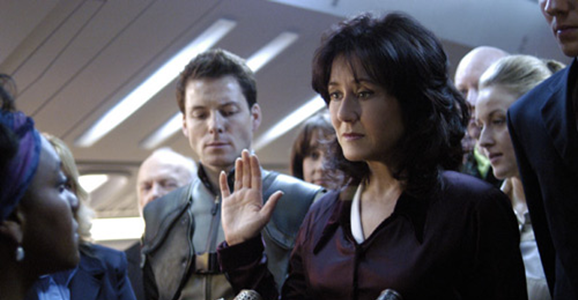
Laura Roslin (Battlestar Galactica)
If there’s one female Battlestar Galactica character that I think is ultimately even more badass than Starbuck, it’s Laura Roslin. Sure, Starbuck could waste her in a fight, but Roslin’s too smart to let it get to that — she’d have figured out a way to outsmart Starbuck before she landed a punch. Roslin, who is Secretary of Education in the pilot, ends up being president of… well, pretty much of the entire surviving human race after the Cylon attacks on the 12 colonies result in the deaths of everyone ahead of her in the line of succession. When she takes the position, it’s clear she’s in over her head, but under the circumstances, who wouldn’t be? She deals with her presidency — as well as the terminal breast cancer she’s fighting — with miraculous competence, both cold and compassionate as each situation dictates. She even orders Adama around a bit, until he decides that she’s awesome and that he agrees with her about pretty much everything — that is, until she becomes religious.
Some people didn’t like the plotline involving Roslin taking the psychotropic chamala extract for her cancer and then having visions and hallucinations that jived with the ancient prophecies, but I loved it. Roslin is exceedingly rational, so when she starts to waver from that, believing that she may be the dying figure that will lead her people to their new homeland, the dramatic tension ratchets up off the charts — especially when her visions fuel a mission that ends in multiple deaths. Roslin, like Starbuck, possesses a dichotomy that deepens as the show progresses, vacillating between hard and soft, practical and spiritual.
One of my favorite scenes is when she orders the Cylon Leoben to be put out the airlock after Starbuck spends an entire day torturing him for information. She promises Leoben safety if he tells her the truth; he does, and she has him killed anyway. Even Starbuck can’t believe it, but Roslin sums up her decision, and her character, perfectly:
During the time I’ve allowed him to remain alive and captive on this ship, he has caused our entire fleet to spread out, defenseless. He puts insidious ideas in our minds, more lethal than any warhead. He creates fear. But you’re right, he is a machine and you don’t keep a deadly machine around when it kills your people and threatens your future, you get rid of it.
Damn straight, Roslin! Roslin for president in 2016! – Joelle
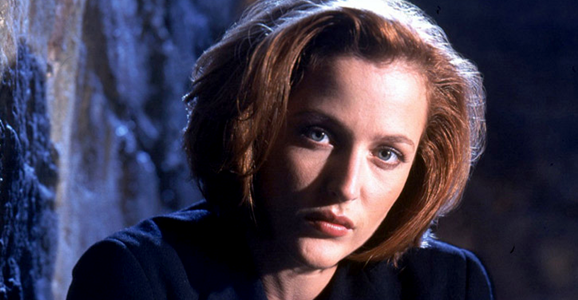
Dana Scully (The X-Files)
Even though Dana Scully is a scientist and doctor extraordinaire, her character wouldn’t have worked without Fox Mulder. They were two halves of a team that kept me glued to my TV every Sunday night for years. Mulder was the conspiracy theorist, the guy who acted on hunches and believed in pretty much everything supernatural, while Scully demanded evidence and played the skeptic to whatever crazy idea Mulder cooked up. As a litmus test, she was invaluable — Scully buying into an idea was the equivalent of an investigative gold star. I always appreciated that she went to medical school but opted not to become a doctor. Obviously she made the right choice — she’d have been bored stiff.
Despite her overwhelming rationality, Scully indulges some doubts and has Mulderesque moments of believing in unprovable theories, such as a death row criminal who claimed he could channel souls, including that of Scully’s dead dad. She does something that not many characters (or people) do, which is to admit that her skepticism and practicality were largely due to her fear of believing in things she could not see or prove. After Mulder’s abduction, she changes her tune, but throughout the show her brushes with the creepy and the unexplained have a resonance that Mulder’s don’t, given that he’s an easy sell.
Scully’s character is dynamic — while she’s well-defined, she also changes, rather than stubbornly clinging to her same beliefs. Scully vacillates between eschewing her faith and buying into it, which seems to be a pretty common characteristic among these heroines. One detail I always enjoyed is that Scully expresses an appreciation for my favorite horror movie: The Exorcist, which is particularly ironic given Scully’s Catholic upbringing.
Perhaps the most terrifying ordeal Scully suffers is being kidnapped by Duane Barry, a paranoid lunatic who had been shot by FBI in a standoff, but whom Mulder believed was the victim of an alien abduction. A month after having vanished without a trace, she shows up in a hospital in DC, comatose. She eventually awakens and the audience later learns that the Syndicate was responsible for her abduction, the chip implanted in her neck, as well as the cancer she gets (which Mulder helps cure with another chip). Some people believe she’s immortal, given her numerous brushes with death and a few choice comments that could be interpreted as implying such. Interestingly, her father gave her the nickname “Starbuck.” Scully also becomes pregnant, despite having been diagnosed as infertile, and while the father of her child is never officially revealed, most people think it was Mulder (duh!). It’s not 100 percent clear until the movie that the two were romantically/sexually involved, even though the show suggests it before then. While it seems inevitable that the two would end up together, their dynamic tension is what makes their partnership, and thus the show, so compelling. Scully doesn’t need a man! – Joelle
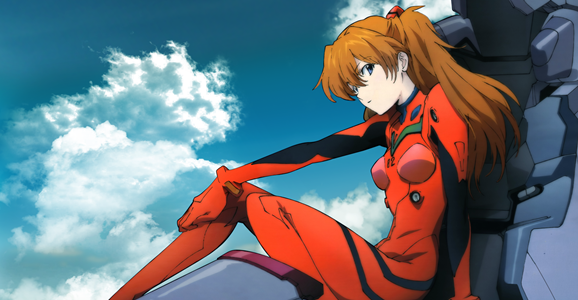
Asuka Langley Soryu (Neon Genesis Evangelion)
Asuka Langley Soryu is one of five children from around the world tasked with piloting giant robots called “Evas” in a post-apocalyptic Japan. She’s the half-German and half-Japanese pilot of Eva-Unit 02 and she’s brash, arrogant, aggressive in battle, and one of the best pilots of Nerv. She is pure Ego and she’s not afraid to flaunt it.
Asuka was introduced in episode eight of the original Neon Genesis Evangelion anime series, designed to act as a counter-balance to the series’ protagonist, Shinji Ikari. As the episodes unfold, we come to realize that Asuka’s demeanor is just at the surface level; beneath that, she’s as vulnerable and fragile as any other teenager. However, despite her feelings, she can completely get the job done to prove that she’s the best Eva pilot out there.
Ever since Asuka was introduced into the show, she has become a fan favorite for both the original series and the reboot. She’s also one of the more complex characters on the show, with plenty of her own demons and darkness to deal with. – Rudie
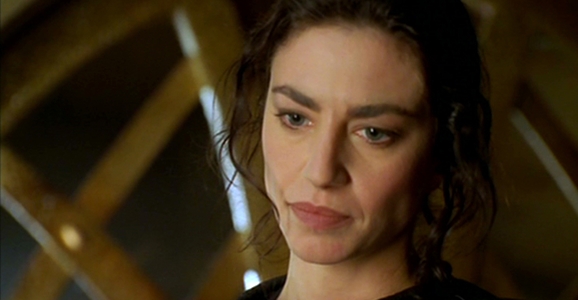
Aeryn Sun (Farscape)
We’re introduced to Aeryn Sun just as the worst possible thing in the universe is happening to her. Well, what she would consider the worst possible thing in the universe at the time, anyway. The hard-ass Peacekeeper warrior and pilot is being held captive aboard a living ship full of escaped prisoners, and to make matters worse, they’ve tossed her into a cell with some doofus who looks like one of her species but who keeps insisting he’s from somewhere called “Earth.” Before you know it, she’s been declared “irreversibly contaminated” by alien influences, meaning she’s been booted out of the Peacekeepers and pretty much everything she’s ever known is now in the toilet. Or whatever the Farscape equivalent of a toilet it.
Like most of the women on this list, Aeryn has a long journey ahead of her, taking her from what she believed to be her lowest point into a future she never could have anticipated. Those escaped prisoners? They’ll become her most trusted friends and comrades. The Peacekeepers? She’ll find herself taking up arms against them time and again. And that doofus from Earth? Well, his name is John Crichton, and he will become not one, but two of the greatest loves of her life. Raised in rigid military fashion by the Peacekeepers, her time aboard Moya shows her the challenges and rewards of questioning authority and charting your own course, even when you’re kicking around the Uncharted Territories.
And while Aeryn is by no means solely or predominately defined by her relationship with Crichton, that relationship is nevertheless one of the best ever explored in the genre, partly in thanks to the white-hot chemistry between Claudia Black and Ben Browder. Part of the fun of that relationship is the way it flips the stereotypical dynamic: Aeryn is by far the more physically capable of the two, and Crichton is often more in touch with his emotions than she is, a legacy of her Peacekeeper upbringing that she never quite shakes off. Her journey through the series is a reminder that the things you take for granted can drop out from under you without warning, but what matters then is how you rise to the challenge. – David

River Tam (Firefly)
Joss Whedon’s Firefly is one of my all-time-favorite shows. I discovered it in 2008, long after it was canceled and long after the feature film Serenity was released. I knew nothing about the TV show, but felt compelled to watch it for some reason. The pilot was OK, but it really didn’t capture my interest until Captain Malcolm Reynolds opened the mysterious box that one of his new passengers, Simon Tam, brought onboard his ship. Inside was River Tam, played by Summer Glau, Simon’s younger sister.
Why did he keep her in the box? Why was the Alliance after her? As the show unfolded and many other storylines were introduced, River’s story was one of my favorites. In fact, my favorite episode of the series is “Objects in Space,” where the bounty hunter Jubal Early captures the ship. River shined in this episode as we began to learn more about her special skills.
It wasn’t until Serenity that we got to see River in action, taking down an entire bar full of people, that we finally got a glimpse of why the Alliance wanted her so badly. We may not have gotten much of the Firefly ‘verse, but we’ll always have River kicking ass against an entire room full of Reavers. – Rudie

Kara “Starbuck” Thrace (Battlestar Galactica)
Love her or hate her — and I’ve met plenty of people who feel both ways — there’s no question Starbuck is a compelling character. Dirk Benedict, who played Starbuck on the original Battlestar Galactica series, was beyond angry about what he called the “castration” of the character, but in case you haven’t seen the original BSG lately, Katee Sackhoff’s Starbuck has far bigger balls than Benedict’s. She’s not afraid of a fight, whether it’s with a Cylon, her XO, or a boxing match with her lover. After surviving a crash landing, she figures out how to activate and fly a Cylon raider, which she later uses to successfully fly back to Caprica to locate and retrieve the Arrow of Apollo, which was then used to “open” the Tomb of Athena and show the survivors of the Twelve Colonies the way to Kobol.
My favorite Starbuck moment is in the episode in which they’ve teamed up with Battleship Pegasus and its terrifying, insane, civilian-slaughtering Admiral Cain. After it becomes clear that the crews of Pegasus and Galactica can’t live in harmony, Cain’s got an assassin ready to off Adama and Adama’s got Starbuck ready to off Cain, despite the fact that Cain just made Starbuck her CAG and Cain understands Starbuck in a way no one else does. That Starbuck is prepared to shoot Cain in the head on Adama’s orders, despite not being a cold-blooded killer and despite honestly respecting and appreciating Cain, exemplifies all of the dichotomies of the character — single-minded yet torn in different directions, compliant yet subordinate, spiritual yet practical, afraid of disappointing others and afraid of disappointing herself, yet somehow afraid of nothing.
We’ll forget back-from-death Starbuck. I never did buy that whole ending. On io9, Ronald Moore said of resurrected Starbuck:
She is what you want to think of her. It was left deliberately nebulous and vague. And I think she was a representative of an entity that didn’t like to be called God, but everybody else talked about it in godlike terms. If you want to call her an angel, you could say that.
I don’t want to call her an angel. I want to call her an asshole — and I mean that in the most affectionate way possible. – Joelle

Trinity (The Matrix)
If your idea of a heroine is someone whose outfit spits in the face of animal rights activists everywhere — and why wouldn’t it be? — then there’s no reason to look beyond Carrie-Anne Moss’ Trinity, the leather-wearing badass who serves as second-in-command to Laurence Fishburne’s Morpheus on the Nebuchadnezzar. A role whose shadow Moss may never escape from, Trinity was someone who often came across as cooler than the main character, especially since that main character was Keanu Reeves’ wha-spouting Neo/Thomas Anderson. If you’ve got bad guys with itchy trigger fingers and the ability to walk all over walls and do crazy flips and shit, Trinity is a necessity to have at your side.
Of course, these opinions are mostly centered on the stellar first film in the Matrix trilogy, as Trinity’s role was morph(eus)ed into the love interest and pushed to the back burner for The Matrix Reloaded. And though her death in The Matrix Revolutions was necessary for Neo to ascend to full heroism, it still felt like the character didn’t come full circle in living up to her potential. She was a wry mystery whose brain contained secrets that normal humans wouldn’t understand, and she was able to do things with her body that most people can only dream of, as well as being extremely handy with a gun and a chair. Especially a chair. – Nick
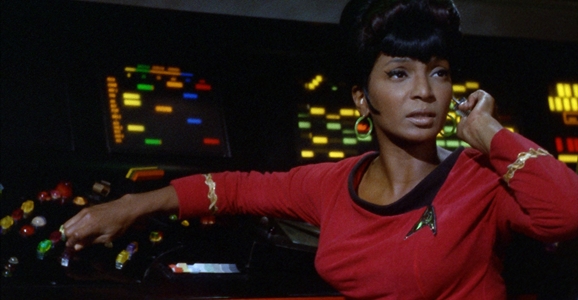
Nyota Uhura (Star Trek)
Not every badass needs to be able to kick the crap out of you in a straight-up fist fight, a point proved readily by Nichelle Nichols’ Uhura on Star Trek, though Zoe Saldana’s rebooted version totally could. She may not be known for her technical combat skills — if we’re being honest, was anyone on the original Trek series all that skilled? — but Uhura certainly smashed the hell out of some pretty rigid social barriers in her day.
Just how rare was it to see an African-American woman on TV in 1966? When Whoopi Goldberg first saw Uhura, she famously proclaimed to her father, “I just saw a black woman on television, and she ain’t no maid.” The first African-American woman to fly on the Space Shuttle, Dr. Mae Jemison, has specifically cited both Uhura and Star Trek as key influences on her decision to join NASA. And if that isn’t an impressive enough level of influence, Nichols wanted to leave the show after the first season, but Martin Luther King Jr. himself convinced her to stay on because of the show’s vision of a future of racial harmony and cooperation.
Beyond a larger cultural impact, Uhura was a key part of the crew, equally as brave and competent as anyone aboard the Enterprise, regardless of race or gender. That is definitely someone to emulate. – Brent

Zoe Washburne (Firefly)
Oh, Zoe. Firefly creator Joss Whedon is amazingly adept at creating strong, dynamic female characters, and of course one aspect of those characters is their love lives. Typically in Joss’ works, however, those love lives are a mess. You’re either having to skewer your vampire boyfriend to save the world, or you’re falling for that charming British gent just in time for your soul to be obliterating by a parasitical godling. But with Zoe and Wash, we finally got to see Joss’ vision of a healthy, stable, committed relationship. Zoe and Wash were perfect for each other, in all the unexpected ways the best relationships are. Like Farscape’s Aeryn and Crichton, Zoe and Wash flip the alpha-male marriage on its head: Wash wouldn’t have a chance against Zoe if it ever came to blows, but he’s sweet and always has her back and makes her laugh, a vital commodity when your life mostly involves living on the run from an oppressive government. Wash and Zoe make each other better. So, of course, they’re doomed.
It’s funny that one of the most defining moments of Zoe’s life — the death of Wash — comes near the de facto end of her story. With Firefly’s story collapsed into the salvaged finale that is Serenity, we don’t get to see much of how Zoe will deal with the loss of Wash — or at least, we hadn’t until recently. Thankfully Zoe’s story is continuing in the form of Serenity: Leaves on the Wind, the in-canon comic series that picks up where the movie left off. And unsurprisingly, Zoe is in a very dark place as it begins: pregnant with Wash’s child, still reeling from his death, and with the crew of Serenity arguably in worse shape than they were before they won a Pyrrhic victory over the Alliance during the movie’s climax. It’s a bad time to be Zoe.
Thankfully there’s no shortage of Firefly badassery to suggest that Zoe will carry on, even if she never really recovers. Mal may be the captain of the boat and the one calling the shots, but it’s Zoe whose opinion he trusts the most. They’ve had each other’s back for years, and Mal knows that she is almost always going to be right, even when that truth is irritating as hell. She’s the quiet, calm voice of reason where it’s needed, the voice of conscience when emotions might get heated, and the only person on the boat perhaps more capable of keeping everybody on Serenity alive and safe than Mal himself. Without Wash, Serenity is a darker, more desperate place. But without Zoe? They’d just be flat-out screwed. – David
